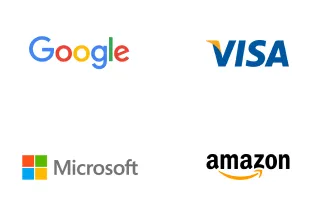Start your journey for free
Begin your learning experience and become a back-end developer with certificate courses curated to land your dream job.
Skills Covered in this Path
- Variables in C
- Data Types
- I/O operations in C
- Operators
- Arrays
- Functions in C
- Strings
- Structure and Unions
- Pointers in C
- Arrays in C programming
- Stacks
- Queue
- Linked List
- Heaps
- Hashing
- Binary Search
- Tree Data Structure
- Binary Tree Data structure
- Rank of a matrix
- echelon form
- solving linear equations
- Gauss-Elimination
- Gauss-Jordan
- Gauss-Seidel methods
- eigenvalues and eigenvectors
- Rayleigh’s power method
- and diagonalization techniques
- Object-Oriented Programming
- Classes
- Objects
- Methods
- Inheritance In Java
- Data Structures Basics
- Importance of Data Structures
- Algorithms Introduction
- Time Complexity
- Recursion Fundamentals
- Recursive Functions
- Recursive Trees
- Tower of Hanoi
- Sorting Algorithms
- Bubble Sort
- Quick Sort
- Merge Sort
- Insertion Sort
- Data Structures
- Recursion
- Bubble Sort
- Quick Sort
- Insertion Sort
- Merge Sort
- Hashing Technique
- Hash table
- Collections in Java
- Tree data structure basics
- Binary Tree concepts
- Traversals methods
- Binary search Tree working
- Implementation of BST in Java
- Binary Tree
- Binary Search Tree
- Operations on BST
- Traversal Methods on BInary Tree
- NoSQL
- Databases
- MongoDB
- Aggregation
- Joins
- Installing MongoDB
- Connecting To Local Server
- Data Understanding And Walkthrough
- Collections And Documents
- Data Preparation
- Importing Data
- Exploration Of Data
- Basic of MongoDB
- NoSQL
- SQL Vs NoSQL
- Installation of MongoDB
- Create Database
- Create Collection
- Create Documents
- CRUD Operations
- Query Execution
- Triggers
- Fundamnetals of Cloud
- Cloud's Significance
- Service Models
- Abstraction Levels
- SPIDERS Freameowrk
- Cloud Architecture
- Managed Services
- Resource Allocation
- Pricing and Scaling Models
- Cloud Virtualization
- Cloud Centralization
- Distributed Computing
- Cloud Applications
- Cloud Service Models
- Trends in Service Models
- Basics of Cloud Computing
- Cloud Computing Platforms
- Types of cloud deployment
- Cloud Computing Architecture
- Amazon Web Services
- Microsoft Azure
- Google Cloud Platform
- Cloud Computing fundamentals
- AWS fundamentals
- AWS Management
- Understanding IaaS PaaS SaaS
- Cloud Deployment Models
- AWS Global Infrastructure
- AWS Core Services
- AWS Compute Services
- Scalability
- Flexibility
- Cost
- Security
- AWS Cloud Storage
- Database Services on AWS
- HR Database Project
- SQL Queries
- Real-World SQL Usage
- HR Database System
- Data Storage
- Data Retrieval
- Data Manipulation
- HR Processes Representation
- Introduction To Database Management System
- Introduction To RDBMS
- Keys In RDBMS
- SQL Commands
- Bank Database Project
- Introduction to MySQL
- Version Control
- Git
- GitHub
- Git Vs GitHub
- Accessing GitHub
- Touring GitHub
- Creating Repository
- Committing Changes
- Branching
- Merging
- Pull Requests
- Basic Git Workflow
- Creating Git Profile




























